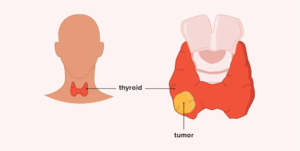Various Tips for Selecting the Best Cancer Treatment Specialist

You may wonder which considerations you should weigh when you search for the cancer center for the best treatment. A cancer diagnosis can be a frightful occurrence, and good care in the right place can mean a lot of difference in comfort and well-being for the patients. So looking for cancer specialist in Lucknow who has the expertise in treating your cancer type, is always a wise decision.
Before starting the investigation, one must get aware of the type of cancer they are diagnosed with. Various clinics and research centres also specialise in various cancer types. This is sometimes because of the hospital board’s special emphasis. Oncologists also specialise in different types of cancer, which ensures that they have resources to research how tumours behave and discover more efficient ways of treating them.
The research and discussion process with doctors could be daunting and challenging. You can be tempted to make decisions so that the recovery will start as fast as possible. But, one should pick the physicians carefully in order to take care of them. So looking for cancer specialist in Lucknow from the various online platform is helpful, where you can get to know about their credentials and experience.
The choice of an oncologist is one of the first and most critical steps in fighting cancer. So, how do you find the most effective oncologist? Well, the major aspects that are important to remember are mentioned here.
- Get Referrals
Begin with a reference list from your doctor of primary care. You may also seek advice from relatives, colleagues, and other healthcare providers. Take the time to review the qualifications and expertise of physicians properly. Call every oncologist’s office as you narrow down your list and request a consultation appointment to meet and interview the doctor.
- Analyze the Credentials of an Oncologist
One of the most important considerations you can remember when selecting an oncologist is board certification. It shows you that to provide healthcare in oncology, the doctor has the expertise, qualifications, and knowledge required. It is also reported that the oncologist has no history of complaints of malpractice or disciplinary proceedings. Training education, trainers, qualifications, and administrative records can be found on their state websites. The medical school is also open to visitors.
- Consider the expertise of the oncologist
Experience matters when it comes to cancer. The longer a doctor has experience with particular cancer therapy, the better is the chances for your illness to get treated. Ask how many patients the oncologist has treated for your particular cancer. Ask how many of the doctor’s procedures have been done to determine complication rates, complications the doctor has experienced, and your own chance of complications if you know you need a particular procedure.
- Take Gender into account
With the gender of your oncologist, it is important to feel relaxed when you may need to share sensitive details openly. But an important consideration is your own gender as well. In taking care of women and men individually, oncologists are getting more specialized. And several hospitals have specialty facilities focused on gender-based cancer care. Ask the oncologist about his or her latest qualifications and expertise linked to cancer and gender in particular.
- Hospital Standard
Your doctor’s hospital is your hospital. Consider the standard of treatment at the hospital where the oncologist sees patients for this purpose. Health consistency matters to you, and there are fewer complications and higher recovery rates for patients at top-rated hospitals. Also, consider the hospital which is frequently checked or administered as you might require a convenient spot. You want a location to encourage rather than discourage timely treatment.
- Consider Mode of Communication
Choose an oncologist you feel comfortable communicating with and who shares the needed information. When you see the oncologist first, ask a question to see if he or she replies. Will they encourage and respond to your questions in terms that you can understand? Between the oncologist and the cancer patient, transparency and sincerity are essential communication tools. Find an oncologist who is interested in knowing you, who takes your medical needs into account, and who would support you.
An oncologist is a cancer-treating specialist. The medical, surgical, radiation, pediatric, and gynecological therapies are some of the subspecialties.
Looking for cancer specialist in Lucknow may be a struggle, but it is worth the benefits. You would feel a lot happier when you collaborate with doctors with whom you can rely on, succeed, engage, and make decisions. Hematologist-oncologists are called oncologists specialised in blood cancer. These doctors have undergone comprehensive and highly trained training in cancer diagnosis and treatment through residences and post-medical school fellowships.
You should expect some more screening once you have been referred to an oncologist. Depending on the type of cancer you have, you will possibly be treated by multiple different cancer professionals.






